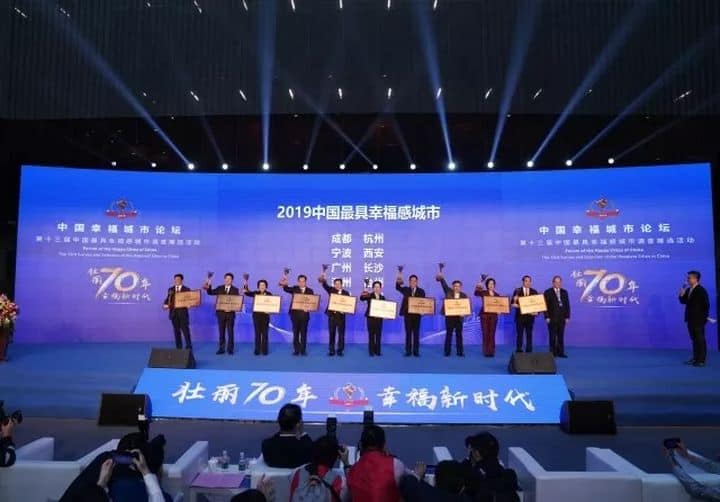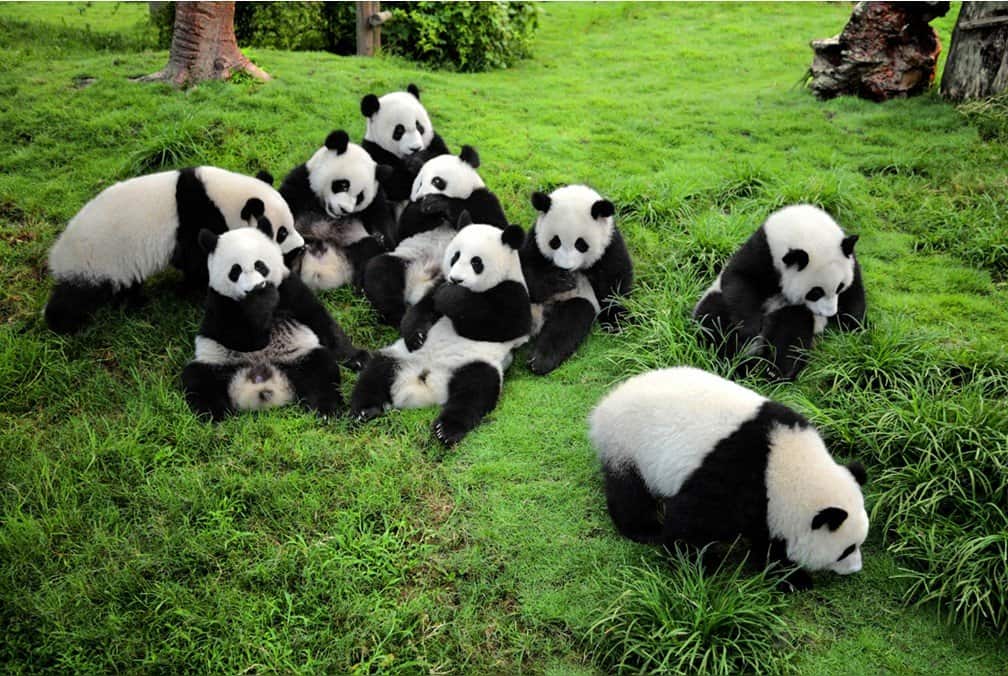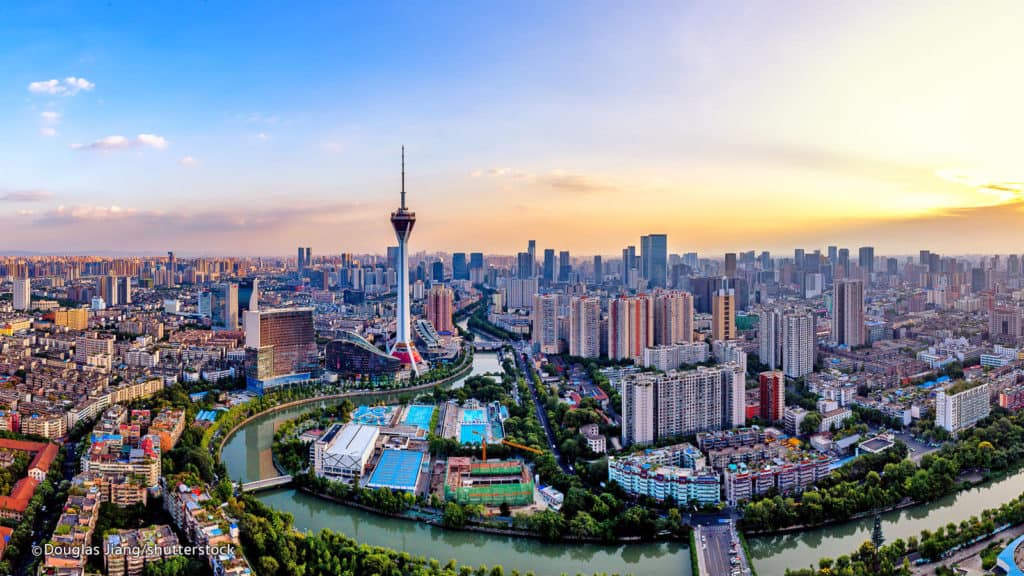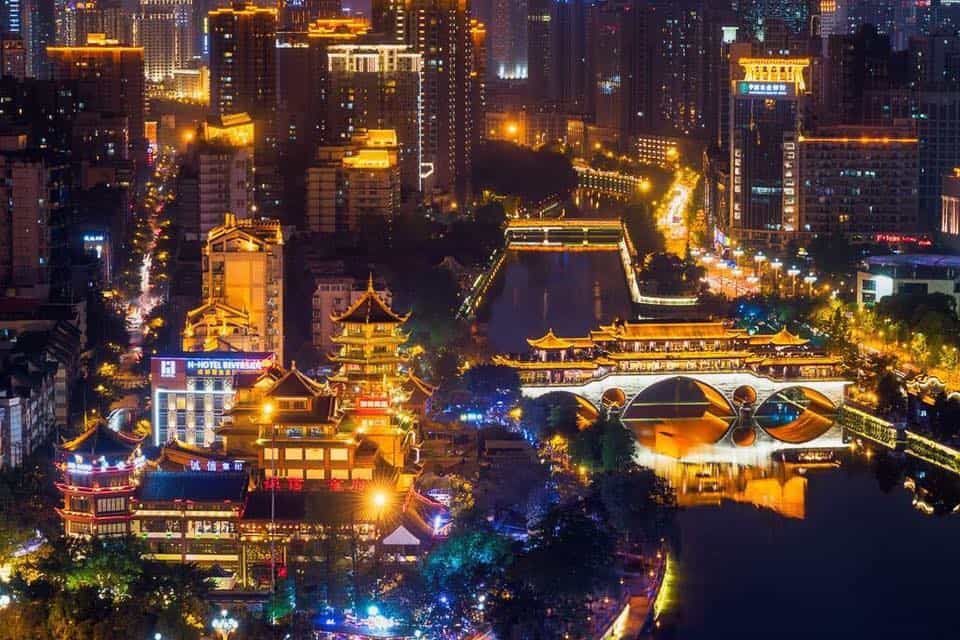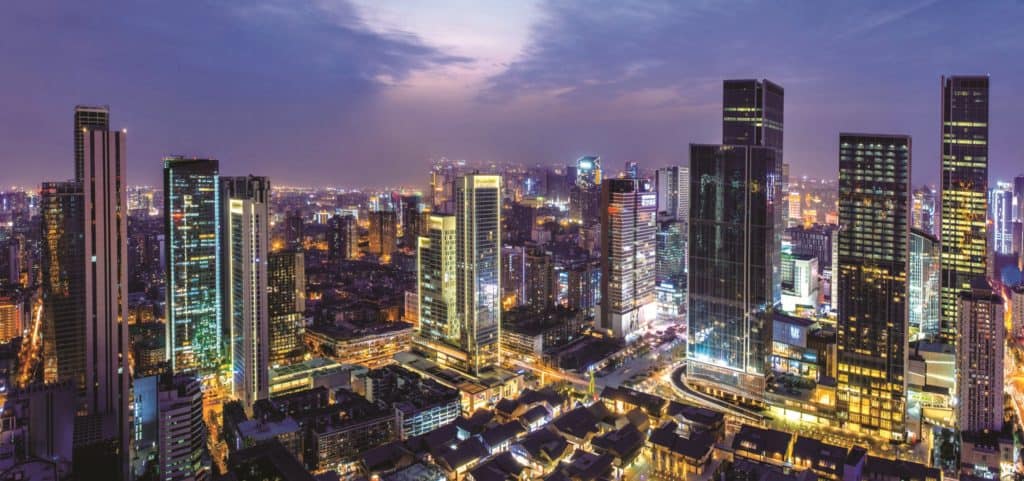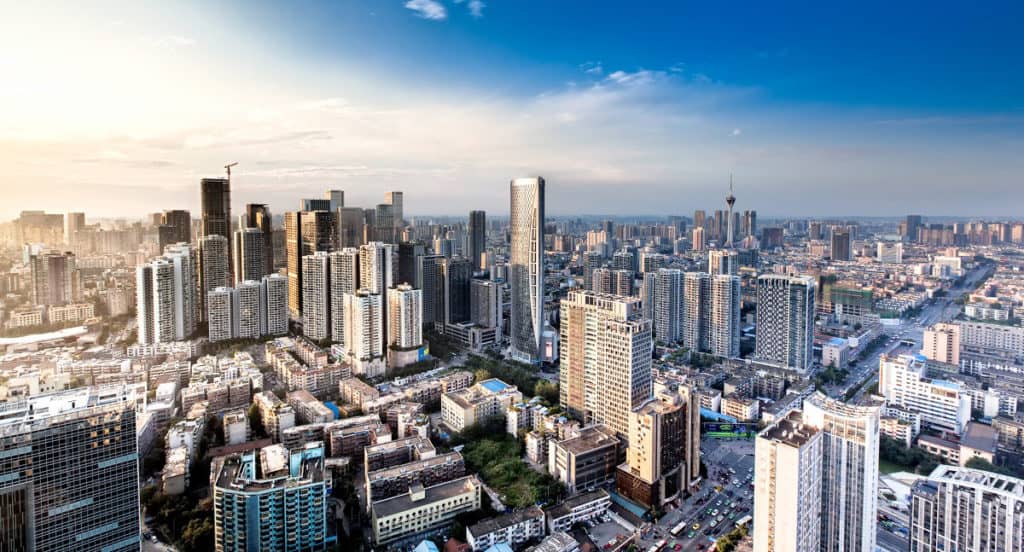Following a forum held in the southern Chinese city of Guangzhou on Monday, ten cities at or above the prefectural level have been listed as the happiest cities in China of 2019. These cities were selected by Oriental Outlook magazine and think tank Liaowang Institute, both run by Xinhua News Agency.
The annual selection of the happiest cities in China was first held in 2007 and has now been run 13 times. Chengdu has been included 11 times in the top 10, so it comes of no surprise that the city is up there yet again. Making Chengdu renown for being one of the happiest cities in China, following its continuous recognition. This is extremely positive for Chengdu as it will attract more people to the city because who wouldn’t want to visit or live in the happiest city in China?
Did you hear that Chengdu is the happiest city in China? In fact, Chengdu was just one of 10 cities that claimed this title. The top 10 cities rated as the happiest alongside Chengdu are Hangzhou, Ningbo, Xi’an, Guangzhou, Changsha, Wenzhou, Taizhou, Tongchuan, and Xuzhou.
What makes Chengdu so Happy?
It has not gone unnoticed that Chengdu has received many praises for being such a thriving and booming city in China recently. Besides the fact that there are cute pandas everywhere you look in the city, putting a smile on people’s faces, there is an abundance of other reasons that lead to Chengdu claiming their spot in the top 10 happiest cities.
Sichuan people are famous for their laidback attitudes, which is very evident in Chengdu, as a relaxed feel to the city, makes residents feel calmer and less stressed in general. There are many easy-going activities in Chengdu including plentiful tea houses and parks where activities such as tai chi and square dances take place, that contribute to the relaxed feel. These characteristics make Chengdu an enjoyable place to visit and live, but this is not unique for Chinese cities as many other smaller cities in China offer the same activities and environments. Everywhere you go in China you will see the older generation sitting around playing a game of Mahjong or relaxing, so it is not apparent why Chengdu is found to be happier than all the other cities with identical characteristics.
The hectic and fast-paced cities, Shanghai and Beijing, present more opportunities for people to advance their careers yet extremely higher living costs and an increasingly competitive market, making the cities a stressful environment to be in. Which is a reasonable explanation as to why smaller cities make it to the top 10 compared to the famously popular cities in China.
More than 10 million people participated in the survey, this seems like a substantial amount of people to gain data from, yet, compared to China’s population, it is still insignificant. China’s exceedingly large population makes it difficult to get an accurate representation of everyone living in each city, meaning that the results don’t provide a true portrayal of the cities’ happiness. Therefore, it appears that these results provide nothing more than a small insight into the cities apparent happiness.
There was a three-month-long process that included big data collection, questionnaire and panel discussions to assess all the cities’ happiness to a certain criterion. There are many issues with questionnaires and panel discussions being used for this research, as they are primarily based around people’s opinions and experiences. Meaning that people can lie and tell misleading information, which can negatively influence and affect the results. As everyone wants their city to be viewed positively and named among the happiest, which may put people off providing their true thoughts and any negative information about their happiness.
Which leads us to ask the question, is there any way to truly measure a cities happiness and can you put a rating on the concept of happiness?
The key criteria assessed to determine happiness included education, employment, income, social welfare, healthcare, living conditions, and environment that concerns people’s happiness. Many argue that this method does not provide an accurate representation of happiness, as all these factors may not necessarily indicate that people are happy. It seems to be rating the cities facilities rather than rating the happiness. There could be amazing education facilities, low unemployment, high living conditions and the top healthcare in a city, yet the people could still be unhappy there. Correlating happiness with the standard of services is not an effective or reliable measurement of people’s feelings within a city.
There is no doubt that Chengdu is an incredible city with a lot of happy people living and visiting here, however, the claim that it is one of the happiest cities in China lacks substantial evidence and requires more research to confirm the information.
What do you think?
Do you think that happiness can be rated through this criteria?
Let us know in the comments below!
